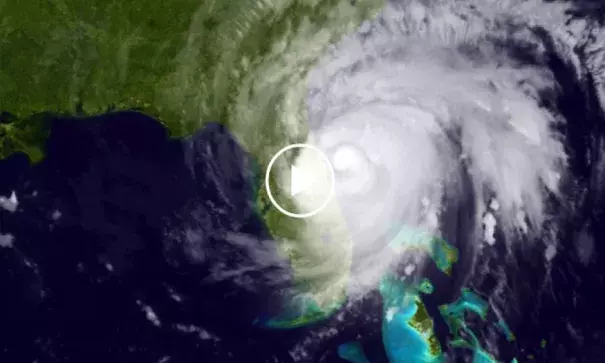Hurricane Matthew looks like climate change

[A]s the impact of the storm becomes clear, there's an uncomfortable truth the rest of us should wrestle with: Hurricane Matthew looks a lot like future climate change. And if we want to stop storms like this from getting even more intense, we need to do everything we can to rid the economy of fossil fuels.
"We expect to see more high-intensity events, Category 4 and 5 events, that are around 13% of total hurricanes but do a disproportionate amount of damage," Kerry Emanuel, a professor of atmospheric science at MIT, told The Guardian. "The theory is robust and there are hints that we are already beginning to see it in nature."
"Last year was the warmest our oceans have ever been on record. And that's critical context," Michael Mann, a professor of atmospheric science at Penn State University,told Democracy Now. "It's that warmth that provides the energy that intensifies these storms. And it isn't a coincidence that we've seen the strongest hurricane in both hemispheres within the last year."
...
By 2100, tropical hurricanes are expected to be 2% to 11% more intense because of global warming, according to the National Oceanic and Atmospheric administration, citing UN data.
Global warming also is expected to make hurricanes produce about 20% more rain near the eye of the storm, according to a US government report. That's critical because freshwater flooding is the second deadliest feature of hurricanes, Emanuel told me.
The top killer is storm surge, he said, and that also will be shaped by our fossil fuel addiction.
...
"Within the next 15 years, higher sea levels combined with storm surge will likely increase the average annual cost of coastal storms along the Eastern Seaboard and the Gulf of Mexico by $2 billion to $3.5 billion," a 2014 report from the Risky Business Project, chaired by Michael Bloomberg, Henry Paulson, and Tom Steyer, found. "Adding in potential changes in hurricane activity, the likely increase in average annual losses grows to up to $7.3 billion, bringing the total annual price tag for hurricanes and other coastal storms to $35 billion"
Related Content






